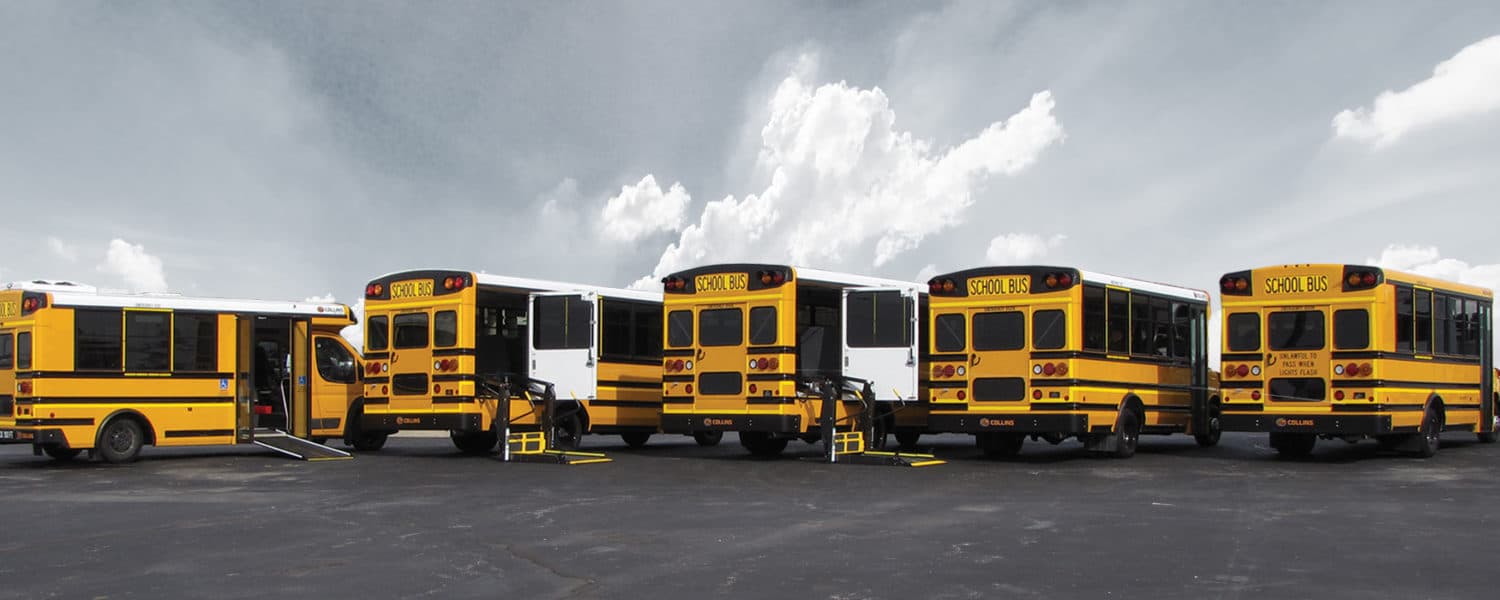By Brian Schamma
Looking for a bus can be a stressful task. Being a good steward of the funds you have been entrusted with sometimes means having to ask for a budget that will get the correct bus instead of the cheapest bus.
With the large number of new and used buses available and the large variation in pricing, how do you decide what is a “good deal?”
The best way to begin the process is to answer a few key questions. We’ve outlined the most important ones below:
- Do you have a driver available with a Commercial Driver’s License?
If you do not have a CDL driver, you will need to stay below 15 passengers, which really translates into 14 passengers plus your driver.
- How many people or students do you need to transport, and will you need additional room for storage?
Knowing at the beginning of your shopping experience how many students you will need to transport and their ages will be very helpful to you. If you are shopping for a school bus, you need to know they are rated based on small children at 3 to a seat. So, if you plan on transporting high school students, know upfront that you will not fit 71 high school students in a 71-passenger school bus.
Storage space can also impact your decision, so knowing how much storage you will need in addition to passengers can save you a lot of heartburn down the road. Familiarizing yourself with the variety of trips, with and without luggage or equipment, at the beginning will be time well-invested.
- How often do you plan on using the bus?
If you only use the bus to take a long trip twice a year or only need a bus a limited amount of time, you might want to consider renting. You will only need to provide insurance for the bus for the term of the rental, and you will not have to invest in maintaining a bus that does not get used. You may find that renting a bus a few times per year is more cost-effective than owning.
- Are you transporting students for your private school?
Several insurance companies require that a private school transporting students must use an MFSAB (Multi-Function School Activity Bus) or a School Bus. Make sure to check with your insurance company for clarification before you begin.
- What are your biggest concerns after the purchase of a new bus?
If you are considering a new bus and your worry is maintenance or repair costs after the factory warranty expires, you may want to consider leasing.
A 3 to 5-year low-mileage lease is very affordable and can keep you in a bus that will be under factory warranty for the lease term. At the end of the term, you can turn it in and get another new unit or have the option to purchase that same unit that you have been driving.
- Has your salesperson asked enough questions to recommend a bus that best fits your needs?
When you are shopping for a new bus, be sure to ask questions beyond just the price of the vehicle. Make sure your salesperson is also asking questions about your needs and having conversations with you about how you use the bus. You want a salesperson who has your best interests in mind. Remember, there are reasons buses vary in price.
Picture this: You take the time to fully explain your needs to someone and get a price based on that discussion. You then go online and find what “appears” to be the same bus for $2,500 less. You call and purchase that bus without going through the same level of discussion. After all, it looks just like what you were priced. You get the bus and use it all winter, and everything is good. When summer rolls around, the air conditioning blows cold but just will not keep up with the outside temperature. You then find out that the original dealer you discussed your needs with in detail understood your climate and had priced a bus with a larger air conditioner that actually cost $3,500 more in comparison and was a better deal for your specific needs.
- What should I keep in mind when shopping for a used bus?
Used buses can be a little more challenging. The best used units will come from a company that offers rental and leasing and sells buses that come from their own fleet. This allows the dealer to know the history and fix known items as they happen, in addition to providing a full inspection before reselling.
A reputable dealer will do an extensive itemized check-over of a trade-in and repair needed items for retail sale. While you cannot fix unseen mechanical issues, this inspection will find items that can be identified through road testing, hands on and visual inspection.
- Do you know what part of the United States the bus was actually used?
It is important to know where a used bus was used vs. where it is currently being sold. A bus ran in the Northeast can have a fraction of the lifespan and value of a bus ran in the Southwest due to rust and corrosion. This is why some buses are purchased in the Northeast and sold from Southern states.
Be on the lookout for fresh new undercoating. This is usually a sign that something is being covered up. You can sandblast the frame and under structure and cover it with coating, but you cannot stop the corrosion in the joints and crevices. This same corrosion will also be in wiring connections, brake lines and other places you cannot see.
These eight questions will help guide you in your journey to a new bus, a used bus or a rental. In the end, remember to buy from a reputable dealer that asks the right questions and listens to your needs.
Brian Schamma is executive vice president of Master’s Transportation, which offers new and used shuttle buses, vans, motor coaches, school buses, MFSABs, specialty vehicles, and more, www.masterstransportation.com.



